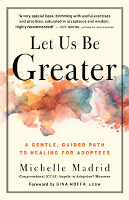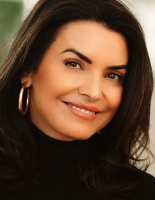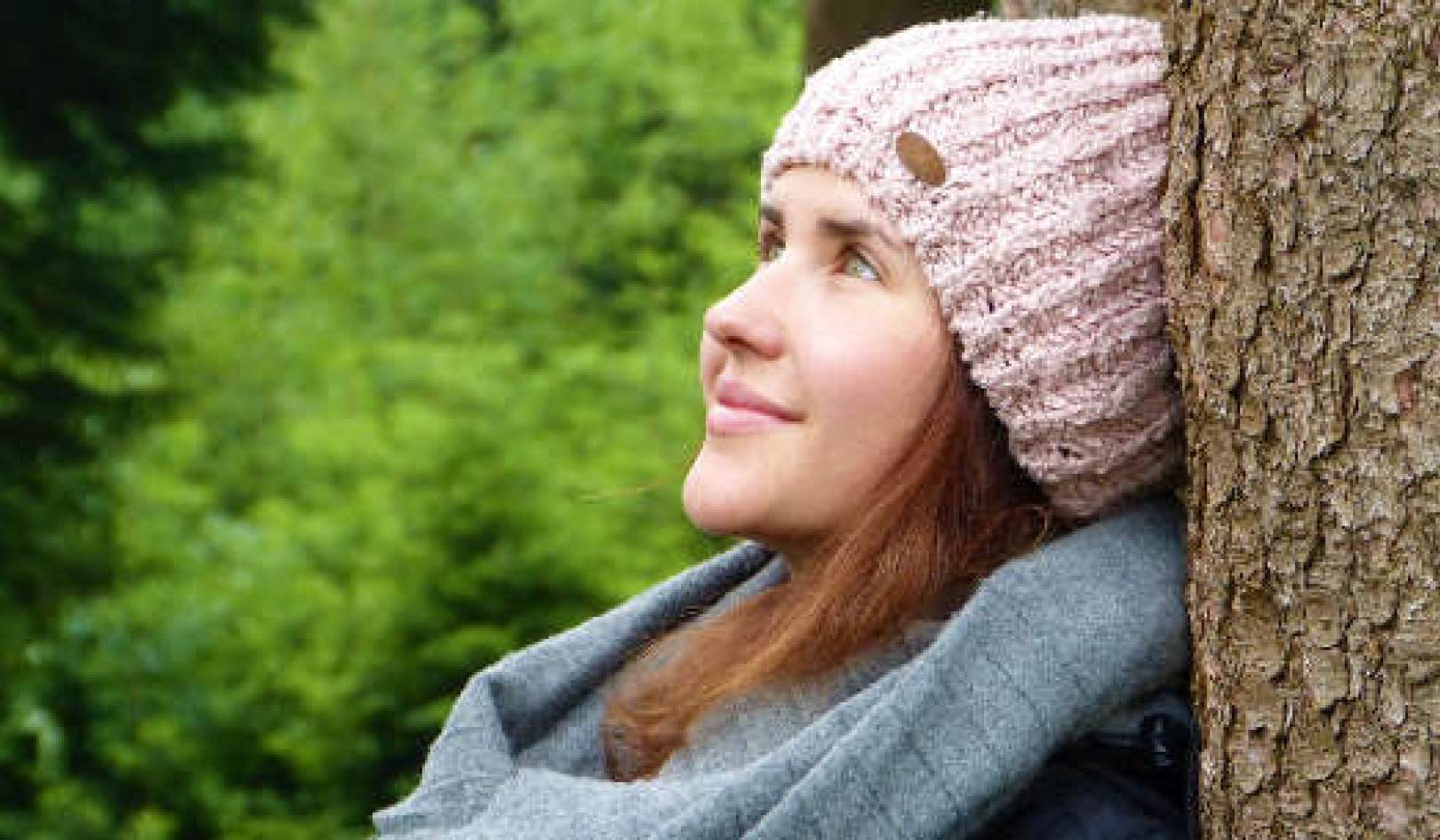
Image by mschiffm from Pixabay
In this Article:
- What is the ancient Hawaiian practice of Ho’oponopono?
- How Ho’oponopono can transform your life
- The power of forgiveness and clearing inner blocks
- Personal stories of healing through Ho’oponopono
- Steps to incorporate Ho’oponopono into your daily life

Message to Self: I Love You. I’m Sorry. Please Forgive Me. Thank You.
by Michelle Madrid.
I love you. I’m sorry. Please forgive me. Thank you.
These four simple phrases have transformed my life. I’d like to introduce you to an ancient Hawaiian forgiveness practice that helps to remove the internal blocks and triggers that may be getting in the way of your emotional, mental, and physical freedom. It’s simple — profound in its simplicity — and it works. This healing practice is known as Ho’oponopono.
If we dissect this Hawaiian word, it looks like Ho’o means “cause” and ponopono means “perfection.” The word translates into English simply as “correction.”
Zero Limits Forgiveness
This ancient problem-solving process of reconciliation and forgiveness is done to help something to move back into balance, or to right a wrong. It’s been widely used to restore and maintain good family relationships within the Hawaiian culture. This practice is based on the belief that when we clear our inner blocks, the outer world responds.
I first read about this practice in a book called Zero Limits by Jim Vitale. The book details the true story of a psychologist who healed an entire ward of mentally ill criminals without ever seeing a single patient.
The psychologist would review the files of his patients and, as he did so, he would work on himself through this process of Ho’oponopono. He spoke these four life-altering phrases as he looked through the charts of the patients in the ward. He spoke them inside himself as an offering. He offered these words up to God, the Universe, the divine:
I love you. I’m sorry. Please forgive me. Thank you.
What Really Happened Here?
Apparently, when the psychologist looked through the charts of his patients, he felt emotions like embarrassment, rage, anger, guilt, and a variety of other feelings. He was super observant about what was coming up for him as he focused on clearing those places within himself. He wasn’t trying to heal the patient; instead, he looked to heal the emotions that the patient was triggering in him.
As he healed his emotions he reconnected to spirit — the sacred space of zero limits where anything is possible. Once he arrived at this place of inner peace, the patients responded with healing of their own.
You can connect to that spiritual place within you, that sacred space of zero limits where anything is possible — awakening limitless truths within yourself, recognizing your vast potential to heal your life, and growing greater than the pain points of the adoptee experience.
When we focus on clearing our internal world, the energy of our external world changes. Where focus goes, energy flows. This practice, which focuses on healing our inner world, can be of great benefit.
Accepting Total Internal Responsibility
When you accept total responsibility for everything you notice within yourself, you are in essence saying that some part of you helped to create what you notice. Take that in for a moment. Remember that you are responsible for your own internal garden. If the garden gets out of balance, the gardener must tend to the soil and clear away what is blocking the garden’s ability to heal and to grow.
Taking total responsibility for everything in the soil of our internal garden means that we are ultimately accountable for the healing of every pain point seeded in that soil — every feeling of being unwelcome, every bit of grief, every denial of truth, all the fear of rejection and pain of distrust, all the loss of a banished biology, every people-pleasing tendency, and every moment filled with a lack of transparency.
When we can own these things, we can find the power to heal them. We find the power to nurture peace within us so that our outer world will respond and come back into balance around us.
Through taking responsibility and stating that the negative programming stored in our minds is causing our dis-ease and pain, we acknowledge that this mindset can be reprogrammed and our lives transformed. We can trust that when we do, the outer world will respond in kind.
What Could Be More Empowering?
When we take responsibility for the past and the present, we also take responsibility for the future. The power shifts from them to me. The power to navigate my healing shifts from them to me. The power to create my future shifts from them to me. The power to discover my God-given purpose shifts from them to me. The power to grow greater than the pain points is shifted from them to me.
I love you. I’m sorry. Please forgive me. Thank you.
I say these four phrases when I open my eyes in the morning and before I close my eyes at night. I say them throughout my day and whenever I notice a limiting belief or a bad-feeling thought sneak in.
I repeat these words when I feel triggered by something or someone. I speak these words of forgiveness to myself in order to release the shame and blame of my journey. I whisper these words and forgive the inauthentic behavior patterns that sometimes slip through.
I say these four phrases and know that by so doing, I am healing not only myself but also the collective. I say these words and trust that the divine is receiving as I am releasing. Clarity and, yes, transparency arrive.
The Passing of My Parents
Both my adoptive parents passed away in 2016, exactly one month apart. When they were gone I felt abandoned all over again. It’s as if the sensations of being left by my first mother and father had been stored inside my body and the death of my adoptive mother and father had caused all that emotion and uncertainty to come rushing back in.
When my adoptive father died, I was on FaceTime with him from California. He could no longer speak, and his breath was shallow. As my dad looked at me, I could tell that he wanted to say, “I’m sorry.”
Through my tears, I told Dad that it was okay and that I wanted him to rest. I began speaking, softly, the words of Ho’oponopono. With my hands over my heart I whispered, I love you. I’m sorry. Please forgive me. Thank you.
Nothing else mattered but for me to offer up to the divine all the brokenness that still resided inside me so that I could hold, tenderly and compassionately, the broken parts of my father as he took his final breaths.
As I whispered the words of Ho’oponopono, it came to me that I had, for so long, been triggered by my father, not only because of his drinking but also because he, too, had lost a dad as a child. That bruised and broken place of loss within me was heightened around my adoptive father, my own sense of anger and insecurity triggered.
As my father lay there dying, I saw him as a little boy who had lost his own father at age eleven. For the first time, I saw my dad as an innocent child who never had the tools to heal. It’s why he drank and lashed out in anger toward me and my mother. He was angry with himself and with the disappointments and losses in his life. He didn’t know where to place his anger, so it spilled over onto us.
Finding a Way to Forgive
There is no denying that my father’s actions hurt me while I was growing up, yet Ho’oponopono helped me find a way to clear my programming and to forgive. Within that place of forgiveness, I was set free, and so was my dad. Those taking care of my father told me that his passing, among all the hundreds they had witnessed, was the most peaceful they’d ever seen. I didn’t do that. The divine did.
Although my dad knew that he could never go back and erase his actions toward me when I was growing up, he had been an incredibly loving grandfather to my kids. He loved them with all that he was.
Dad had stopped drinking later in his life, and to this day my children fondly remember the doting love of their grandfather. The practice of Ho’oponopono has helped me to remember that man, the loving grandfather, and to hold a space of love for the little boy inside my dad who for so much of his life felt alone and lost.
When my adoptive mother died, four weeks after my father, she did so with grace and an unwavering faith. I was by my adoptive mother’s side when she passed away.
I know that she loved me, but I don’t think my mother ever quite got me. She had a vision of who she wanted me to be. Trying to be that daughter just wasn’t sustainable for me; it wasn’t my authentic self.
I had to become all that I needed to be. I had to stop chasing the little girl held in my mother’s dreams. I had to honor my first me because it was that little girl that I needed to show up for and reclaim. I became a woman on the day I decided to step into my own vision for my life.
The Internal Shifts Continue
I love you. I’m sorry. Please forgive me. Thank you.
I hope you will speak the words of Ho’oponopono and begin to note any shifts that you experience as you do.
Don’t overthink this process; just lean into it and allow the words to open you up to a place of peace within. Take notice of the shifts in your internal world and how these shifts impact your external world. Let yourself feel love and gratitude as you make this practice a part of your daily ritual.
I believe in the power of these words of Ho’oponopono. I love you. I’m sorry. Please forgive me. Thank you.
I believe in the power of you.
Copyright 2023 by Michelle Madrid. All Rights Reserved.
Printed with permission from New World Library.
Article Source:
BOOK: Let Us Be Greater
Let Us Be Greater: A Gentle, Guided Path to Healing for Adoptees
by Michelle Madrid
 Adoption is a lifeline of support and opportunity for countless people, but it can bring challenges and emotional conditions that are often silenced or left unaddressed, including PTSD, risk of suicide, and fear of abandonment. Author Michelle Madrid has experienced these challenges herself.
Adoption is a lifeline of support and opportunity for countless people, but it can bring challenges and emotional conditions that are often silenced or left unaddressed, including PTSD, risk of suicide, and fear of abandonment. Author Michelle Madrid has experienced these challenges herself.
Written with compassion and authenticity, Let Us Be Greater will help adoptees and their families feel heard, seen, and understood as they work to build open, fulfilling, and healthy relationships.
For more info and/or to order this book, click here. Also available as a Kindle edition.
About the Author
 Michelle Madrid is the author of Let Us Be Greater: A Gentle, Guided Path to Healing for Adoptees and host of the Electricity of You Podcast. She is an international adoptee, former foster child in the UK, and an adoptee empowerment life coach who has been recognized as an Angels in Adoption® Honoree by the Congressional Coalition on Adoption Institute (CCAI) and inducted into the New Mexico Women’s Hall of Fame for her work in adoption.
Michelle Madrid is the author of Let Us Be Greater: A Gentle, Guided Path to Healing for Adoptees and host of the Electricity of You Podcast. She is an international adoptee, former foster child in the UK, and an adoptee empowerment life coach who has been recognized as an Angels in Adoption® Honoree by the Congressional Coalition on Adoption Institute (CCAI) and inducted into the New Mexico Women’s Hall of Fame for her work in adoption.
You can visit her online at http://TheMichelleMadrid.com.
Article Recap:
This article by Michelle Madrid explores the transformative power of the ancient Hawaiian forgiveness practice known as Ho’oponopono. The focus is on the message to self: "I Love You. I’m Sorry. Please Forgive Me. Thank You." These phrases serve as a powerful tool for self-healing, helping to clear inner blocks and bring about emotional and spiritual growth. The article details how this practice works, its history, and the profound impact it can have on one's life. Through personal stories, the article illustrates how integrating Ho’oponopono into daily life can lead to inner peace and healing.


























